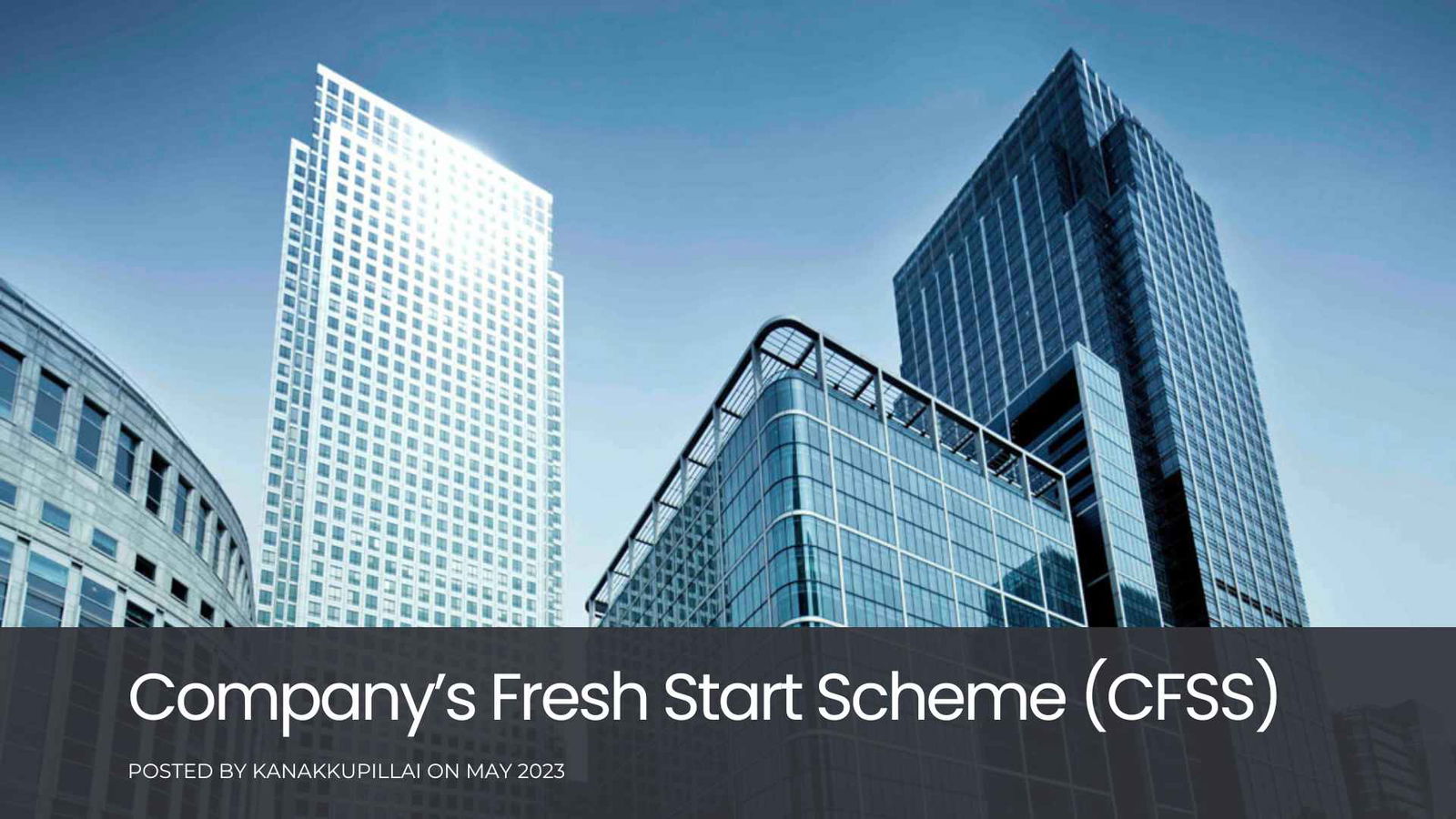What is CFSS?
The Ministry of Corporate Affairs has introduced the Company’s Fresh Start Scheme (CFSS) in an effort to provide relief to defaulting companies. A defaulting company fails to comply with its compliance requirements. Under this scheme, the defaulting company is required to pay only the normal prescribed fees for all filings with the MCA 21 registry, without any additional fees.
Features of the Company’s Start Scheme
Waiver of Additional Fees: The CFSS allows defaulting companies to submit all essential documents, returns, and annual filings by paying only the prescribed fees, while the additional fees are waived.
Dormant Company Status: A company can apply for the status of a dormant company under Section 455 of the Companies Act by using the form of MCA 1. Additionally, they can apply for a strike off by applying STK-2.
Limited Immunity: The scheme provides immunity only for proceedings involving the imposition of high penalty fees. It does not grant immunity for proceedings related to the interests of shareholders.
Procedure for Availing the CFSS Scheme
Submission of Documents and Fees: All crucial documents, returns, and statutory annual filings, such as the annual return and financial statements, should be submitted in the prescribed E-form to the statutory filing authority, along with the prescribed fees.
Self-Declaration Scheme: The CFSS scheme is based on self-declaration. Interested companies that wish to revive themselves after withdrawal can avail themselves of the scheme’s benefits by submitting the required documents. A designated authority issues the immunity certificate.
Conditions where CFSS will not apply
- Ongoing Strike Off Procedure: If the designated authority has already initiated the strike-off procedure, the company cannot avail itself of the benefits of CFSS.
- Self-Filing for Strike Off: If the company has already filed for strike-off using the STK-2 form, they are not eligible for the CFSS scheme.
- Vanishing Companies: Vanishing companies are not eligible for the benefits of the CFSS scheme.
- Amalgamated Companies: Companies that have been amalgamated with other entities cannot avail themselves of the benefits of the CFSS scheme.
- Increase in Authorized Capital: The CFSS scheme does not apply to cases involving an increase in authorized capital or any charge-related documents.
- Pending Appeals: If the company has a pending appeal in any court of law, they are not eligible for the CFSS scheme.
- Court-Ordered Convictions: Companies that a court of law has convicted are not eligible for the CFSS scheme.
The Impact of the CFSS Scheme Immunity
- Revocation of Proceedings: Once immunity is granted under the CFSS scheme, all proceedings related to defaults in filing will be revoked, and the company will be required to pay only a reduced compensation amount.
- Applicable to Active Companies: Immunity is granted only to active companies, and inactive or dormant companies are not eligible.
- Importance of Timely Filing: Immunity is provided only when all required documents, such as the annual return, are submitted on time. Delayed filing may reduce the possibility of granting immunity. Immunity is not provided to organizations involved in bankruptcy or other offenses.
Conclusion
The CFSS scheme has proved to be highly beneficial for business organizations, particularly during the pandemic. It not only provided relief to defaulting companies but also encouraged the revival of companies that were facing strike off.





